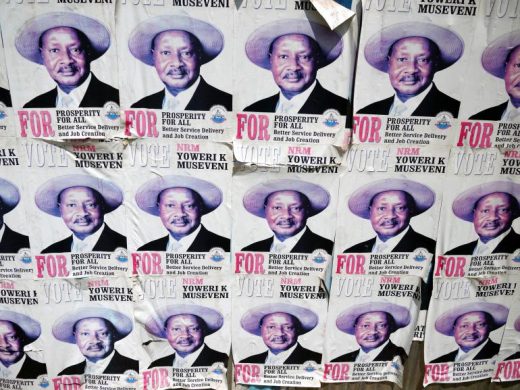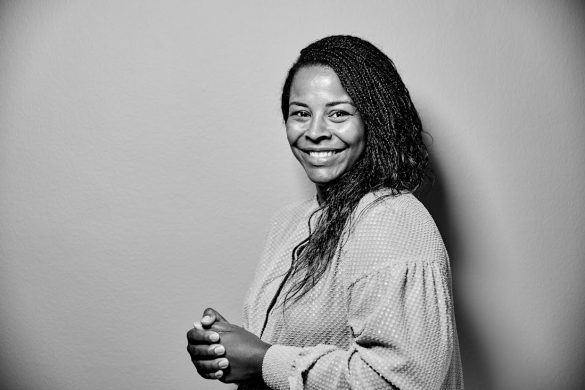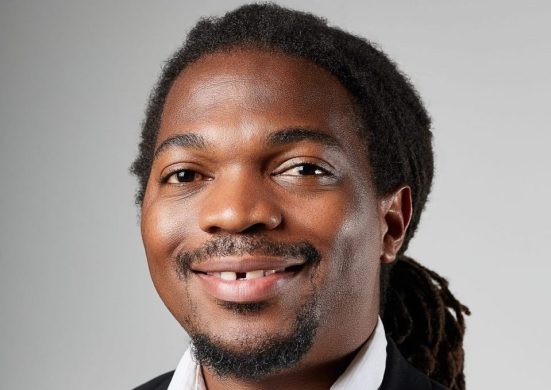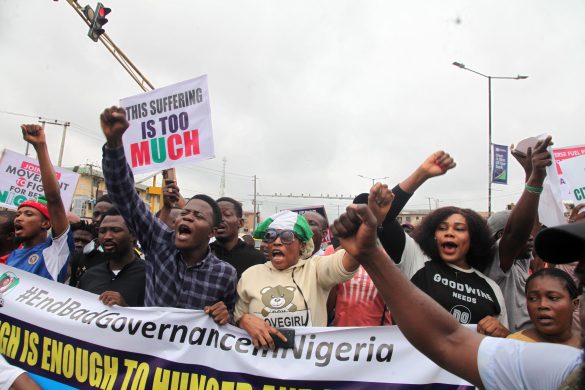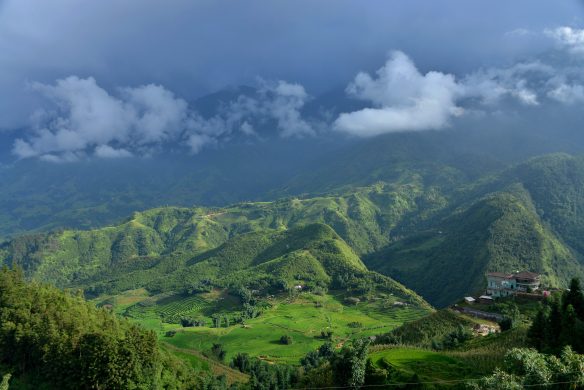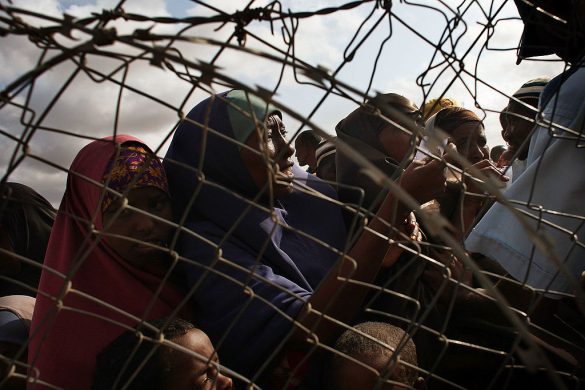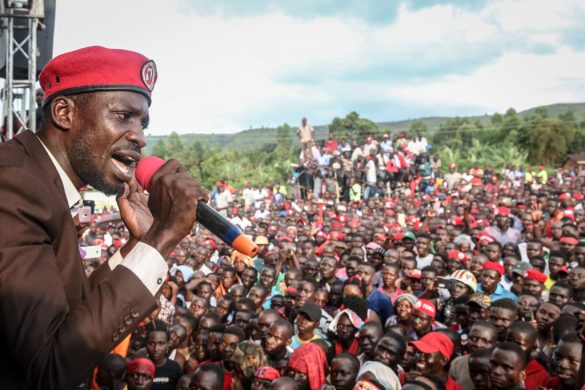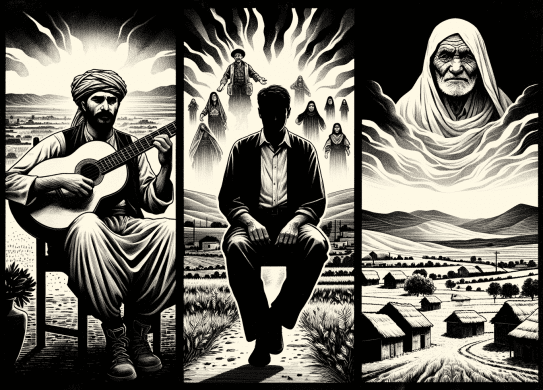It is almost impossible to conceive of an alternative to victory by President Yoweri Museveni at the Ugandan elections on 18. February, writes the Uppsala-based Nordic Africa Institute (NAI) in its latest newsletter Friday..
At the same time, it is likely the other two main Presidential contenders, Amama Mbabazi and Kizza Besigye, will claim that the elections were neither free nor fair.
According to NAI researcher Anders Sjögren they will probably have good reason to do so. Previous election results in Uganda have invariably been questioned by the opposition as well as by international observers.
Mange måder at styre tingene på
Nowadays, however, it is not on election day that the rigging takes place. The tampering begins much earlier, for instance, when members of the electoral commission are appointed and during voter registration.
And the use of state resources during the campaign is also a form of rigging, since the opposition obviously lacks access to them. Controlling the media is yet another means of gaining electoral advantage.
“In some cases, journalists have received threats for reports on opposition candidates and radio stations have been temporarily closed after inviting opposition representatives to air their views”, Sjögren observes adding:
“In most cases, though, threats are not needed, since the media censors itself. They know what the consequences will be if they don’t. Neither are the police impartial. Several opposition rallies have been disrupted by police. This never happens to the rallies of the ruling party”.
Museveni har sin sikre base på landet
Young urbanites are expected to vote against Museveni (71), but since only 18 per cent of the population lives in cities, the president has little to fear from them.
Museveni’s greatest support has always been in the countryside, particularly the western and southern regions. In the elections of 2011, moreover, he actually increased his share of the vote in other regions as well.
One explanation is that the president had finally managed to defuse the conflict in the north. Another is that opposition parties don’t have the resources to reach beyond major towns. And no one wants to be on the losing side.
“The government punishes regions dominated by the opposition. They can count on fewer development projects. There is at least the hope of reward if a region supports the winning candidate – which in Uganda has long meant Museven”, Sjögren says, noting:
“Moreover, local politicians believe they have more influence and a better chance of improving their home regions if they sit in on the ruling party’s benches in parliament rather than the opposition’s”.
“Voldsom undertrykkelse af oppositionen”
NAI guest researcher Joschka Phillips points out that the opposition parties are, in fact, present in some parts of the countryside, but are heavily suppressed. Such suppression is more likely to go unnoticed there than in Kampala, where it may evoke reports and debate.
“However, let’s not forget that many people in the countryside do support Museveni. He is still remembered for bringing peace 30 years ago, he regularly visits rural areas with money and goods, and he has successfully deflected blame for corruption and mismanagement in the country on to individual officials, rather than the overall regime,” Phillips stresses.
In Kampala, such tactics are futile. The regime’s corruption is more than obvious, to the extent that some of Phillips’s informants don’t bother to register to vote any more.
They have lost faith in changing Uganda through the ballot. Some even think the opposition parties are orchestrated by Museveni, just to create the illusion of real democracy.
Økonomien hænger i laser
“Not much is going well in the country. The economy is failing, and falling oil prices mean that exploring Uganda’s oil resources near Lake Victoria is not viable”, Anders Sjögren states addng:
“The national debt is huge, and many city dwellers are unemployed and survive by petty trade in the informal sector. Public services are inadequate. And outside the cities people struggle as subsistence farmers”.
All this suggests that Ugandans have good reason to be discontent.
Yet he doubts that the public protests recently seen in Burkina Faso and Burundi will occur in Uganda. Such protest might happen if the opposition manages to persuade enough people that obvious election fraud has taken place, but even then nothing will change.
“The government is definitely prepared for this. If people do protest against the results, they will face a massive police and military deployment”, Sjögren says.
Phillips agrees: “The state is just too strong and ever present. It controls everything.”
Anders Sjögren er forsker på Nordiska Afrika Institutet (NAI) i Uppsala i Sverige.
Kilde: NAIs seneste nyhedsbrev fredag.
Vide mere om Uganda?
Trods pæn økonomisk vækst og en imponerende indsats mod fattigdommen præges Uganda af den galopperende folkevækst, som risikerer at æde alle fremskridt op.
De seneste 12 år er indbyggertallet steget med 10,6 millioner og i et land, hvor hver kvinde i snit får seks børn, beregner FN, at der om føje år vil være mange, mange flere ugandesere end de 38-39 millioner, der er i dag – mod blot 9,5 mio. i 1969.
Uganda er tillige “verdens yngste nation” med en gennemsnitsalder helt nede på 15 år.
Se meget mere på https://en.wikipedia.org/wiki/Uganda

